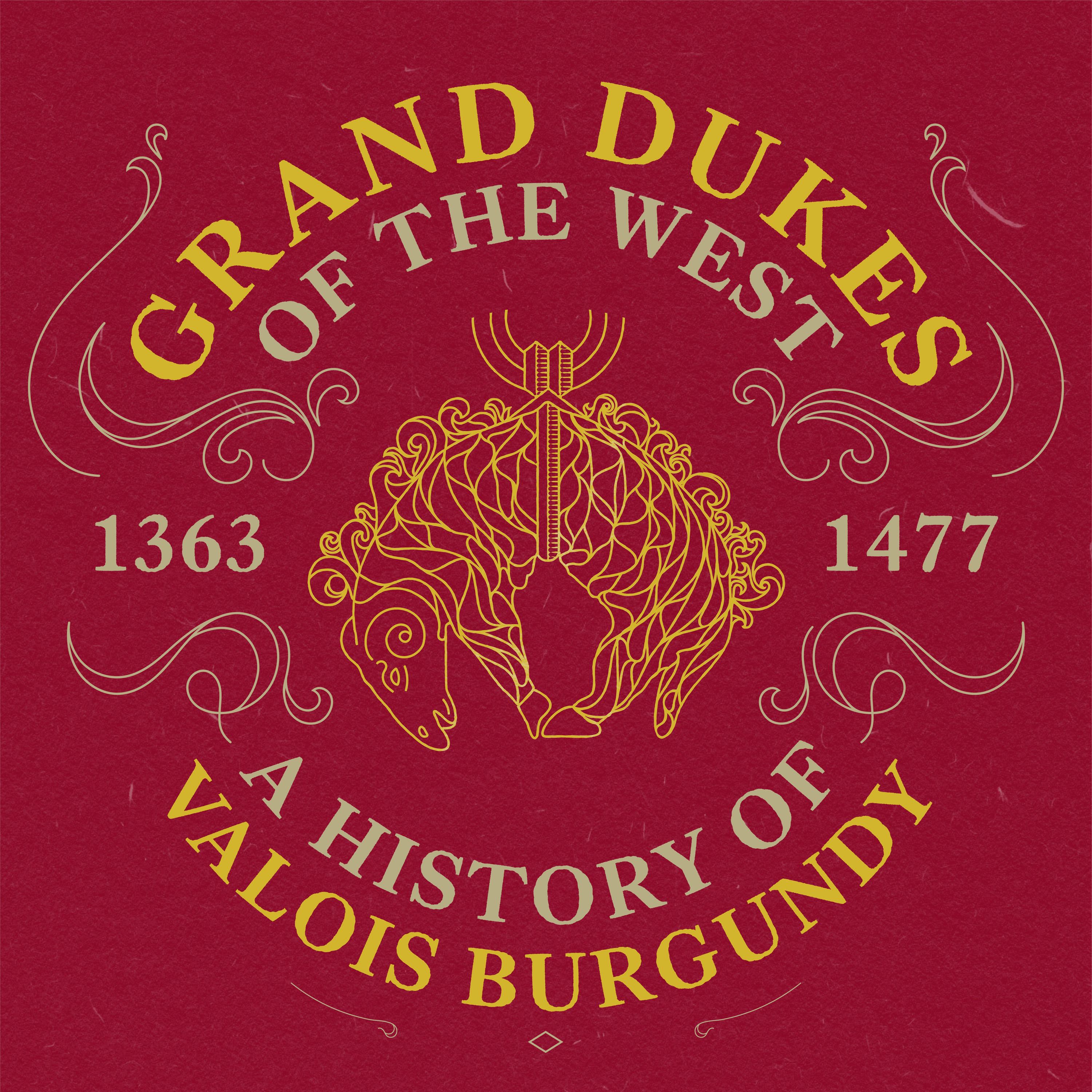
La Fayette, We Are Here!
La Fayette, We Are Here!
The Five French Republics - From Revolution to Evolution
Use Left/Right to seek, Home/End to jump to start or end. Hold shift to jump forward or backward.
We will traverse the peaks and valleys of five republics, each reflecting France’s evolving spirit and struggles. From revolutionary fervour to imperial ambition, from the trials of war to the triumphs of modern democracy, each republic has contributed to the rich mosaic of France as we know it today.
Join us as we unravel the dramatic narrative of the Five French Republics, where every chapter is a tale of resilience and reinvention. Prepare to be captivated by a story as rich and complex as France itself.
Timecodes
Introduction
05:15 - Establishment of the First Republic
17:38 - The Directorate and the Consulate
25:05 - The short-lived Second Republic
34:47 - The Third Republic - Out of the Ashes, into the Fire
45:11 - The Belle Époque and the World Wars
51:12 - The Fourth Republic - Colonial Crisis
58:45 - The Fifth Republic - Presidential authority
01:04:19 - Conclusion
Relevant Episodes:
- First Republic: The French Revolution, a Worldwide Tremor & Napoléon Part I - From Corsica to Paris
- Second & Third Republics: The Franco-Prussian War of 1870, rehearsal for the World Wars, French Indochina, from Imperial Jewel to Hell on Earth, The Dreyfus Affair. France's Shame, The First World War. The French Experience
- Fourth & Fifth Republics: The Fall of France of 1940, German Victory or French Defeat?, Charles de Gaulle, Tales of Grandeur
Music: Marche pour la cérémonie des Turcs, composed by Jean-Baptiste Lully, arranged and performed by Jérôme Arfouche.
Artwork: La République triomphante préside à la grande fête nationale du 14 juillet 1880, 1880 (Archives nationales, Paris).
Reach out, support the show and give me feedback!
Our tale begins with the chaos and promise of the French Revolution, when the people of France rose up, toppling the Ancien Régime and sending its representatives to the guillotine. This bold experiment in democracy would soon be overshadowed by the meteoric rise of Napoléon Bonaparte, who ushered in the era of the First French Empire. But Napoléon’s fall was merely the prelude to a new chapter in France’s ongoing quest for stability and modernity.
As the Empire crumbled, the monarchy was briefly revived, only to be short-lived. The Second Republic flickered with hopes of democracy before being eclipsed by the ambitions of Louis-Napoléon Bonaparte, who declared himself Emperor, setting the stage for the Second French Empire. Yet history was far from finished with its dramatic twists. The collapse of the Empire, following defeat against Prussia, gave rise to the Third Republic—a period marked by both triumphs and tribulations, guiding France through the stormy seas of industrialization and imperialism.
The Third Republic endured for seventy years before it was overwhelmed by the forces of Nazi Germany. The end of World War II allowed for the creation of the Fourth Republic, a time of reconstruction and renewal but also of political fragility and colonial strife. As the Fourth Republic faltered, a old figure emerged from the desert—Charles de Gaulle, who would lay the foundations for the Fifth Republic, a regime characterized by stability and a renewed sense of national pride.
Today, we’ll traverse the peaks and valleys of these five republics, each reflecting France’s evolving spirit and struggles. From revolutionary fervour to imperial ambition, from the trials of war to the triumphs of modern democracy, each republic has contributed to the rich mosaic of France as we know it today.
Join us as we unravel the dramatic narrative of the Five French Republics, where every chapter is a tale of resilience and reinvention. Prepare to be captivated by a story as rich and complex as France itself.
Welcome, to La Fayette, We are here!, the French history podcast, by a Frenchman. I am your host, Emmanuel Dubois, and today, we’re diving into a fascinating topic: the history of the Five French Republics. To many outsiders, especially Americans, this might seem puzzling. Why did France experience five different republics while the United States, during the same period, maintained a single form of government with only constitutional amendments?
This question merits exploration, and we’ll delve into it today. Since 1789, France has seen twelve different forms of government. To give you a quick rundown: we’ve had the Monarchy, the First Republic, the Consulate, the Empire, the Restoration Monarchy, the July Monarchy, the Second Republic, the Second Empire, the Third Republic, the Vichy Regime, the Fourth Republic, and the Fifth Republic. While some changes were more dramatic than others, the overall picture can seem like a complex French mess!
In this episode, our focus will be on the Five French Republics. We’ll explore how each one came about, their unique characteristics, and their eventual downfalls. In future episodes, I’ll cover the other regimes that have shaped France’s history. For now, I encourage you to listen to my previous episodes on the French Revolution, Napoléon Bonaparte, the Franco-Prussian War, World War I, and Charles de Gaulle for additional context. Keep in mind that I will go very fast over big stretches of time to cover the different republics, this is not an in-depth analysis. Listening to my episodes focusing on the different time periods covered here will greatly help, as I want you to get an idea of how this republican regimes worked, not sum up everything that happened while they were in place.
So, buckle up as we jump all the way back to 1789 and the days of the French Revolution!
Establishment of the First Republic
I won't go back to the origins of the Révolution, please listen to my dedicated episode for that, we will focus on how the Monarchy was abolished and the Republic chosen as France's new form of government. I will however draw some small parts of that episode to provide context. Contrary to a popular belief, the French king wasn't guillotined right after the beginning of the Révolution in 1789. The French people actually wanted a Constitutional Monarchy, not a Republic, at least at first. They believed in the figure of the king and wanted to make it work, but in a new way. The first big step towards this was the "Declaration of the Rights of Man and of the Citizen", promulgated by the National Constituent Assembly in August 1789. Men like La Fayette or the Abbot Sieyès, took part in writing it. It set the new reality for France. The old days of absolute monarchy were definitively over, but no one knew yet what would replace them.
So, for a time, France tried to make constitutional monarchy work, with Louis XVI remaining as king. Many things happened between 1789 and 1791 that undermined the whole endeavour, but the last straw is when Louis and the royal family decide to flee France on June 20th 1791. Louis flees during the night, along with his family. But he's recognized on the road and arrested at Varennes. That's why the event is known as the "Flight to Varennes", even though the king was not heading for Varennes, he was just passing trough. He's brought back to Paris on June 25th. Louis and the monarchy were in a very, very bad place after that.
The Revolutionaries tried to work with Louis a bit longer and the Constituent Assembly adopts its first Constitution on September 3rd 1791. The king swears his oath to uphold it on September 14th. He even has the right to veto propositions of laws he doesn't like. The Assembly becomes the Legislative Assembly. Louis is playing for time. The Revolutionary government entertains very bad relations with the foreign powers, the king knows this. On April 20th, France declares war on Austria. The latter is soon joined by its ally Prussia, to fight their now common enemy. Many European powers will join this war, known as the War of the First Coalition, trying to undo the revolution. But the French revolutionary armies will eventually triumph, even though the first months are catastrophic for the French forces. Louis was expecting the coalition to invade France and to restore the Old Régime. This didn't happen.
During the following months of 1792, the power struggle between Louis XVI and the Assembly keeps going. The king actually wants his country to lose the war, while the government wants to win it and, at the same time, to eradicate inside anti-revolutionary agents. On June 20th, a manifestation transforms into a riot and the mob storms the Tuileries palace, killing the royal guards. Louis XVI holds firm and is spared, but not for much longer.
The Parisian people keeps protesting and rioting against the king and his family, perceived as traitors and dictators. This is known as the Commune de Paris. The Assembly fears that this could spiral out of control so, to calm things down, they imprison the king and his family on August 10th. He's also suspended and cannot interfere with the government anymore. The Commune has put the last nail in the monarchy's coffin, Louis XVI won't ever exercise any power again.
On September 21st, the National Convention abolishes the Monarchy and the next day, it establishes the French Republic. It also adopts a new calendar, based on the birth of the Republic. So this was year one in the new Republican calendars with a 10-base month and week system.
Speaking of the calendar, the French Republic faced a unique challenge: to chose a way to represent itself. Formerly, money and official documents showed the face of the king, as the head of State. But what now? No man could represent the Republic or France all by himself? The whole point was to get rid of such an idea. From this interrogation, the French deputies chose to use the portrait of a woman, wearing a Phrygian hat, another Revolutionary symbol. That woman, who still represents the French Republic today, was named Marianne. Her name comes from Spanish philosopher Juan de Mariana who had written about natural rights and who was a great influence on the Declaration of the Rights of Man and of the Citizen. Today, she also embodies the ideas of liberty and of fighting abusive power.
So, the king is now gone, France had just ended a regime that had lasted a thousand years. It had adopted a Republic, a form of governance dating back to the Antiquity. It comes from the Latin res publica, literally meaning "public affair" or "public matter", indicating that governance and power reside with the public, not a with king. Many philosophers had written treaties and books about what a Republic is and means, but the French were of course most influenced by the philosophes of the Lumières, the French Enlightenment. Listen to our August 2022 episode on this subject if you want to find out all about it.
But pertaining to the idea of a Republic, I think Jean-Jacques Rousseau gives the most explicit analysis in his Social Contract when he writes, quote: "Every state governed by laws, regardless of the form of administration it may have; for only then does the public interest govern and the public matter become something. All legitimate government is republican.", end quote. Hence, if a government serves the public, it is a republic, no matter the particularities. It implies that other form of governments, monarchies for example, do not serve the public by their very nature.
The French also clearly echoed the Roman Republic, which existed before the Roman Empire. They saw it as an ideal form of government, or at least trying to be so. We all know the failings of the Roman Republic and the subsequent empire, but we can understand the idea here. A Republic, in theory, is the only form of government capable of serving the people and not only a chosen elite. Any monarchy, even a constitutional monarchy, has some sort of hereditary system creating inequalities. A Republic doesn't have that problem, at least in theory. It's a utopian view, but Revolutions aren't build on pragmatism, are they? The point is to replace the current state of affairs by something radically better in the view of the revolutionaries. Well, a Republic made perfect sense to the French revolutionaries in 1792.
What will become the First French Republic had a very, very rough start. The country was at war with basically every European monarchy with an army and it was facing famines. France executed its former king in January 1793, which was not a popular move abroad, and the Republic lacked legitimacy in the eyes of many French people.
This first republic was governed by the National Convention, it was a unicameralism regime, as it had only one house. By comparison, most modern republics have two houses: an upper and a lower. The idea is to counterbalance the power of the legislative body. The National Convention was unchecked in that regard. It was elected by universal male suffrage and met in the Salle du Manège in the Tuileries Palace, in Paris.
In that system, only men over the age of 21 could vote. Neither women, nor servants, nor individuals without known income were allowed to participate in the suffrage. The whole thing is at first a logistical mess. The French elect 749 representatives, but most of the time, a little over 300 show up at meetings and votes. They elect a president among themselves to preside over the works of the assembly. That president is elected for only two weeks, so over 70 presidents will be elected between 1792 and 1795.
The point was to prevent concentration of power in the hands of one man. They were making this up as they went, and mistakes were made, as we'll see. The First republic had three major change of governance. The first Assembly was dominated by the Girondins, from the foundation of the republic to June 1793. Following an insurrection in Spring 1793, a new assembly is voted in, with the Montagnards, or the mountaineers, at its head. It's during that period that the Terror will happened, with the Committee of Public Safety, an organ of government created to protect the new republic against its foreign and domestic enemies. They will eventually suspend the Declaration of the Rights of Man and of the Citizen to allow the committee to act as it saw fit. Many thousands will die under the guillotine during the purges that will follow, until the regime leaders, most famously Robespierre, will also die under the famed blade, in July 1794.
Finally, the third Convention, formed after the fall of Robespierre, is known as the Thermidorian convention, as the coup against Robespierre happened on Thermidor 9 of Year II in the French republican calendar, or July 27th 1794. As you have noted by now, the Convention was struggling just to stay in power, being ousted once by an insurrection and then by an internal strife following a period of dictatorship and massive killings. Not a great start for the Republic, and certainly a far cry from the utopian society the Revolutionaries had in mind in 1792.
The Directorate and the Consulate
It was clear that the Republic needed stronger, better institutions. So on August 22nd 1795, the National Convention adopts a new constitution, the Constitution of Year III, which reestablish many liberties suspended during the Terror, but also distances itself from some core principles of the Revolution, such as natural law and universal rights. Citizens have rights and also duties, right in the constitution. And to help manœuvre all that, the functioning of the Republic is altered with the establishment of a system know as the Directorate.
Instead of universal male suffrage, the Republic now works with a census suffrage, meaning that you have to be a homeowner to vote. This limits the vote to around 30,000 men. The convention also decides to divide itself, to prevent more drama among the deputies. An upper house, the Council of the Elders, and a lower house, the Council of the 500. Instead of a president, the Elders choose five directors, chosen from a list presented by the 500. Each year, one of the directors is replaced by somebody else. This prevents the establishment of a new organ like the Committee for Public Safety, as power both legislative and executive is spread and divided.
Quick note, it is just before that, in July 1795, that the Marseillaise, written by Rouget de Lisle for the army of the Rhine, is adopted as the French national anthem. It is a revolutionary war anthem that calls for resistance against foreign invasion and urges patriotic mobilization. It also serves as a hymn to freedom and a rallying cry against tyranny. It will come and go depending on regimes, but since 1879, it is firmly entrenched as France's national anthem.
At first, the Directorate seems to hold. The internal situation stabilizes and France is winning victories on various military fronts. But it faces many challenges, including strong and growing royalist activities, discontent from revolutionaries hardliners and big corruption issues. Royalists try to topple the government by getting elected and taking over the Republic, but they are outmanoeuvred by the directors. On September 4th 1797, the directors, assisted by the army, lead a coup against the elected councils to arrest royalists members. It is known as the coup of 18 fructidor year V. Following that, they greatly reinforce the executive power over the legislative. It does prevent the royalists from taking over, but it weakens the republican institutions. It also shows where the real power really is: with the army.
The Directorate enters a downward spiral. It can't stabilize the dire financial situation and starts suffering military defeats in 1798 and 1799. Seeing this, some men start conspiring to replace it with a more effective form of government. One that would be in the hands of less people, more efficient deciders and leaders. Director Sieyès works to change the Constitution to reinforce the executive power of the Directory and to weaken the councils once and for all. Changing the Constitution is technically possible, but it requires a unity that he cannot get. There is only one way out: a military coup.
After some tergiversation, Sieyès thinks that the young general Napoléon Bonaparte could help him in this endeavour. Bonaparte agrees and on November 9 1799, or the 18 Brumaire in the republican calendar, they successfully lead a coup to topple the government and to form a new republican order: the Consulate. The Directory is no more. Again, please listen to my dedicated episodes on the Revolution or Napoléon to get more details on all this major events, I have to skim a lot here otherwise the episode would be three hours long.
The Consulate is headed by three men: Bonaparte, Sieyès and Ducos, a former member of the Council of the Elders. This system inspired by Classical Rome will be the last one of the First French Republic. Napoléon Bonaparte becomes First Consul following the Constitution of Year VIII, promulgated in December 1799. Soon enough, he will wield all the real power in France. The Consulate does have institutions, namely the Conseil d'État, or State Council, who's members are named by Napoléon and are there to help him write and implement laws. The Tribunat, with 100 deputies, discusses these laws and can adjust them if need be, without modify them too much. The Corps Legislatif, with 300 deputies, implements laws on the territory. Finally, the Sénat conservateur, or Conservative Senate, choses the deputies from both the Tribunat and the Corps legislatif. Its sixty members are chosen by Bonaparte. It's a complete circle, Bonaparte effectively has control over all branches of government.
The Consulate is perceived as a Golden age for France and the first Republic, despite the loss of democratic institutions. Following French military victories, a series of peace treaties are signed, culminating with the Treaty of Amiens of March 25th 1802, which even Great-Britain signs. For the first time in ten years, the canons are quiet in Europe. Internally, many overdue reforms are implemented, but some aspects of the Old Regime are also brought back by Napoléon. Great advancements like the Code Civil or the creation of the Banque de France are brought forward, but women's rights are driven back to the 1789 status quo and other liberties are suspended. In 1804, Napoléon signs a Concordat with the Papacy, walking back on the Republic's secular core principles. In December 1804, Napoléon has himself crowned emperor, claiming that the Republic is, quote "entrusted to an emperor". He ends the charade that had been going on for five years and effectively reestablishes a monarchial dynastic regime. France won't have another Republic for 44 years.
The short-lived Second Republic
France will continue on with the Empire, until 1814, then the Bourbon Restoration in 1814, then the Hundred Days and another restoration in 1815. This monarchy will endure until 1830, when the French will revolt against the Bourbons once again and the King of France will be replaced by a King of the French, the more moderate Louis-Philippe of the house of Orléans. This regime is known as the July Monarchy.
The first years are promising and France actually reestablishes its status as a major power in Europe. But troubles arise in the mid 1840's. The country is plagued by bad crops in 1845 and 1846, followed by an economic crisis. It also induces a discontent against the institutions. The July Monarchy is a parliamentary regime, but there are only about 240,000 voters, in a country of over 35 millions. It's a male census suffrage, which discriminates against big portion of the population, and more and more French citizens are sick of it. They want to have a say in the affairs of their country.
France actually suffers a very complex political crisis alongside the economic one, with factions fighting for power. Monarchists, republicans, moderates, all fight over the French institutions. In 1847, the political system is effectively paralyzed and the king is unable to untangle it. In February 1848, the opposition organizes a political manifestation known as a banquet campaign, to circumvent the interdiction of political reunions implemented earlier. They put together marches, with bands accompanying the crowds, then they meet over a feast to discuss the political situation. That feast is actually expensive, to prevent poor people from getting in. They were reformers, but not that much.
On February 23rd 1848, Parisians revolt against the State. Barricades are put together and the National Gard is summoned by the government. Citizens are killed by the soldiers following a misunderstanding and the situation becomes impossible. Louis-Philippe has to abdicate the next day, forced by rioters who entered the Palace of the Tuileries. He flees for England, asking for his grand-son to be selected as the new king. The French won't have it. The government falls with the king and the July Monarchy is no more.
The Republicans, leaders of the insurrections, now see their chance. A provisory republican government is formed and quickly proclaims that it will help the poor and workers. The industrial workers are especially targeted, as they are the fastest growing class in France and are the victims of the horrible capitalism of the Nineteenth century. They echo the revolution of 1789 but want to prevent a new Reign of Terror. They also abolish slavery for good and vow not to wage wars of conquest against other nations.
On April 23rd 1848, the French vote for a National Constituent Assembly, to decide on a new constitution. It's a a universal male suffrage, not a census one this time. When the results are calculated, the moderate republicans have a clear majority. Alongside the left-wing socialists and right-wing member of the Parti de l'ordre, they put together a constitution and proclaim the Republic on November 4 1848. This is a unique take on the French Republican regime. It's a Christian Republic, proclaiming its principles quote "In the presence of God and in the name of the French People". In this, it resembles the American Republic. It proclaims the freedom of the press, of worship and association, and property. It also suppress the death penalty for political crimes.
The branches of power are also firmly separated. There is only one house, the National Legislative Assembly, The executive power is in the hands of a president, elected for four years also by male universal suffrage. However, this president can't be reelected for a second term right away, to prevent a form of monarchial republic. Presidential elections are to be held in December 1848. A few men try their luck. Eugène Cavaignac, a former general with lots of support tries to seduce conservatives and moderates alike. Alexandre Ledru-Rollin represents the socialists and other left-wingers. Even the poet Lamartine puts his name down. But they will all be beaten by a man bearing a great name. Louis-Napoléon Bonaparte, Napoléon Bonaparte's nephew.
Despite having tried to take over the government in 1836 with a failed military coup, Bonaparte manages to present himself as the ideal candidate. The left is very divided, and the ultra-conservative scare the moderates. He is seen as both a champion of the people and a right-wing conservative, the, quote, "Napoléon of the people". The monarchists and Catholics also support him, which is a great help. On December 11 1848, Louis-Napoléon Bonaparte becomes the first directly elected President of the French Republic, with 74% of the vote. It's a triumph.
Once in place, Bonaparte works with the Parti de l'ordre to establish a very conservative government with monarchial tendencies. They undermine the left-wing republicans and actually work the Republican institutions against them. The legislative elections of mid 1849 see the conservatives win the majority, both in popular votes and in seats. The socialists are the main opposition and the moderates are a distant third. But the conservatives don't care much about the opposition and govern as they see fit.
The following couple of years are very tumultuous, including a French expedition in Rome where the French army helped put the Pope back on his throne after having been ousted by Roman Republicans... It's a complicated story, but it emphasizes the point that the French government under Bonaparte was much more attached to traditional values and Catholicism than to republicanism.
On May 31st 1850, a law is voted to limit the number of electors. To vote, one has to prove having lived in the same commune or town for at least three years. In a moment, 30% of the electorate disappears. The goal is simple: to restrict the electorate and to prevent left-wing parties to appeal to the poor workers. It is denounced by many representatives, including the author Victor Hugo who, despite being a member of the Parti de l'ordre says quote: "This law subjects three million marginalized people to the rule of six million privileged individuals in a feudal manner. It creates a class of helots, a monstrous injustice." End quote. At the same time, the liberty of the press is limited by the government. By 1851, this Republic looks less and less like a democracy, and more like an authoritarian monarchy in disguise.
Bonaparte aims to stay in power, despite the Constitution forbidding him from running for a second term. Hence, he does what his uncle did in 1799: a Coup! He launches it on December 2nd 1851, the anniversary of Napoléon's coronation and of the Battle of Austerlitz. With the army at his side and his minions at key roles in the government, Bonaparte takes over within a couple days. Following a plebiscite in late December, he has the French voters validate his coup. He then strong-arms the people and the press to support a change of regime in 1852. On November 7th, 1852, Bonaparte proposes the creation of a new empire proclaiming that "Empire is peace". He organizes a new plebiscite on November 20th and has himself proclaimed emperor Napoléon III on December 2nd, 1852. The Second Republic was no more and France was now under the Second Empire regime.
The Third Republic - Out of the Ashes, into the Fire
Napoléon III will rule as emperor until 1870, when the Franco-Prussian war happens. Following a disastrous military defeat at Sedan, a huge part of the French army surrenders and the aging and ill emperor is captured by the Germans. In the midst of the crisis, Republicans in Paris see their chance. On September 4th, 1870, two days after the emperor's capture, representatives Léon Gambetta and Jules Favre declare that the emperor is deposed and proclaim the formation of a new Republic at the Paris City Hall. The rest of the major French cities join this republican appeal and in a matter of days, the whole of France turns the page of empire and monarchy. The Second Empire had been the last monarchial regime in the history of France.
But this new Republic is in a terrible situation. France is still at war with Prussia and Paris is besieged. The representatives decide to form a government of National Defence to pursue the war. Part of the government flees to Bordeaux, with Léon Gambetta famously escaping Paris in a balloon. But the Prussians are too well entrenched and their army too strong. On January 18, 1871, the German Unification is proclaimed at the château de Versailles, the new Reich had been created in France, rubbing it in. The Parisians are still besieged and are starving and living in terrible conditions. The government doesn't have a choice but to negotiate an armistice. It becomes effective on January 28th.
The French organize elections hastily to have some form of legitimate government to negotiate with the Germans. The French vote for the members of a National Assembly with only one house, although this is clearly a temporary solution. Its goal is to negotiate the peace, stabilize the country to then have favourable conditions to establish a proper constitution for the Third Republic. Funnily enough, the elected representatives are mostly monarchists, but they swallow the pill for the immediate good of the country. France needs a stable government to negotiate peace and at the moment, that stability lies in a united republic.
The French and the Germans sign a humiliating peace treaty for France at Versailles on February 21st. The French have to pay 5 billion Francs, about three times the French GNP at the time, they have to cede most of Alsace and Moselle to the German Reich. Despite the opposition of representatives from Alsace and Lorraine, the National Assembly ratifies it on March 1st. The war has ended and France is disgraced and weakened.
The Parisians firmly oppose this treaty. Many of them see it as a treason, especially given the suffering they've been enduring for months. In their eyes, it had all been for nothing. The French government acts first, by taking guns located in Montmartre. Riots ensue, two generals are killed and the rioters stand firm. On March 26, they elect a General Council of the Commune. A bloody stand-off follows in April and May. During the week of May 21st, the French government sends in the troops in what is knowns as the Bloody Week. Around 900 soldiers die, alongside over 10,000 communards, the French rebels. The French Republic had been born out of a terrible military defeat and its first major act was to crush a rebellion in blood. Not the best start for a new regime!
The National Assembly had chose one man as "head of the executive branch of the French Republic", an quasi temporary dictator. That man is Adolphe Thiers, a conservative. He first strives to pay off the war reparations as quickly as possible, since France remains under German occupation until they are fully paid. The French manage to pay the Germans off in 1873, by contracting many debts.
While Thiers is working on stabilizing the country, monarchists plot to overthrow the newborn republic in favour of a new monarchy. But they can't unite, or even agree on who should be king. This serves the Republic and in 1872 Adolphe Thiers proclaims quote: "The Republic exists, it is the legal government of the country. Wanting something else would be a new revolution and the most formidable of all." End quote. The representatives then start working on establishing strong bases for the new republic.
Having learned from the failure of the Second Republic, it is decided that the President of the Republic should have less powers and that it should be a parliamentary regime, with two houses, the Chamber of Deputies and the Senate. The constitutional laws are voted in February 1875, establishing the new workings of the Republic. The real power lies in the National Assembly and the head of government, the President of the Council of Ministers. They are elected by universal male suffrage. The president is elected for seven years by the National Assembly, the combination of both houses. He enacts the laws, can pardon criminals, can nominate some members of government and can dissolve the National Assembly if the political situation requires it. But he's far from being as powerful as he was during the Second Republic, to prevent a new coup à la Bonaparte.
After a few years, the Republic becomes more progressive, notably under the influence of Jules Ferry, a representative, minister and eventually President of the Council in 1883. France modernizes very quickly in the 1880's. School is made free, mandatory and secular, the famed "Republican School", laws are passed to entrench the liberty of the press and of expression in France, unions are legalized. The country is becoming more and more politically liberal despite being morally quite conservative. It is also in 1879 that the Marseillaise is firmly established as France's national anthem, anchoring the Republic in its revolutionary roots. If you haven't done so already, I encourage you to find and read the lyrics of the Marseillaise. They are, let's say, interesting.
A perfect example of the dichotomy between conservatism and liberalism in France is the Dreyfus affair. I've covered it in full in a dedicated episode in December 2023, but the gist of it is this. In October 1894, a Jewish French artillery officer is wrongly accused of treason. He's victim of a conspiracy amongst the military and part of the Republic. Over the next twelve years, the country will be divided into supporters and adversaries of Dreyfus. It's a deep crisis that sheds a lot of lights on French social and moral issues at the time. In the end, Dreyfus will be pardoned and reinstated in 1906, but he'll have spent years as a prisoner in the Bagne of Cayenne.
This affair had two effects on religion: it exacerbated antisemitism from Catholic conservatives, but also anticlericalism from socialists and other left-wingers. As time went by, a proper separation of the State and the Church looked more and more reasonable, despite the immense majority of France's population being catholic. In 1902, a firmly left-wing government is elected and they start to work on new laws to that effect. France's religious affairs were still under the 1802 Concordat established between Napoléon and the Papacy, but following a major crisis between France and the Vatican in 1904, the Concordat was effectively dead.
A commission is formed under representatives Ferdinand Buisson and Aristide Briand and in 1905 their report proposes a, quote "loyal and complete separation of Churches and State", end quote. The law is promulgated in December 1905, it ensure the liberty of cult for everyone but also firmly separates the State from the Church. The ministers (priests, rabbis, bishops, etc.) are no longer paid by the State, but some buildings owned by the State are given back to various churches. If the French people was first divided on the question of secularism, it soon enough became a hallmark of French republicanism. Religion was still a major part of French life, but not anymore part of government or national education. To this day, the French are still very attached to these principles.
The Belle Époque and the World Wars
The Third Republic was blessed in the late nineteenth century and early twentieth century by a period of economic growth, despite some drawbacks, and enormous scientific and technological advancements. Also, just like their great rivals the British, the French hugely expanded their colonial possessions during that period. With the Scramble for Africa and the division of the continent in 1884 during the Berlin Conference and the conquest of Indochina during the 1880's and 1890's, France was once again a major international power, only really rivalled by Great Britain and Germany, with the United States sill a bit distant.
The Third Republic was enjoying greater stability than any French government since the Monarchy. In 1910, it was entering its fifth decade and its core principles and institutions seemed very solid. Despite the major economical and social changes that happened in France, there wasn't a big current of opinion against the Republic itself. Sure, you could still find monarchists in France, or the occasional rebel hardline republican, unhappy with the relative moderate approach of the French government. But overall, the French Republic was enjoying a great stability and the French people saw their quality of life improve over the years.
France was also a major centre for arts, literature and sciences. Paris was considered the cultural capital of Europe. With their colonial empire, the French considered themselves warriors engaged in a civilizing mission on various continents. Although this was not the case, the French were exploiting the resources and people from their colonies through coercion, this perspective made the French very proud and contributed to France's international standing.
That's the world France lived in at the outbreak of the First World War in August 1914. I'll let you listen to my episode of February 2024 to learn more about the French experience during the war. But basically, the French Republic survived it, which is almost a miracle, especially considering the scale of destruction and death that occurred on French soil. The French had suffered 1.7 million killed, 300,000 of them civilians. 4,3 million Frenchmen were wounded, half of them incapacitated for life. These numbers are enormous. Over ten percent of the entire French population had been killed or wounded in the war. France as a nation was deeply hurt, but its government stayed the course. During the war, it mostly presented a united front to guide the country. After 1919, all bets were off.
In the 1920's, France is a country traumatized by the war. While the government tries to show strength in France and abroad, the people are done with war and sacrifices. They've suffered too much and make that known to their leaders. The roaring twenties help France recover economically, but the Krach of 1929 catches up with France in the early thirties. Industries collapse, living standards decrease, many find themselves without homes or jobs. France is becoming more and more divided between extreme right politics and left-wing ones, just like many other European countries. Despite right-wing riots in February 1934, the Third Republic doesn't fall into fascism of some sort, contrary to Italy and Germany. By then, the Republican institutions in France are very solid and most French actually want to uphold what it represents.
In 1936, a left-wing coalition government known as the Front Populaire is elected. It will work to improve the lives of the average French person. It will reduce the work week to 40 hours, it will introduce annual leave in France, it will nationalize key industries, like the train network with the creation of the SNCF. Despite the hardships and the frequent changes of government, with no party managing to gain a majority, the Republic holds on. It is shaken but it is solid, it would take a catastrophe for it to crumble. That catastrophe will be delivered once again, by Germany.
I encourage you to listen to my episode on the Fall of France of 1940 to learn all the details, but the point here is that following the crushing military defeat against Germany in May-June 1940, the French government calls on old Marshal Pétain to head them in this crisis. On July 10th, 1940, the National Assembly meets at Vichy and votes for giving full powers to Marshall Pétain. This vote effectively kills the Republic and creates a new authoritarian regime that will be known as the Vichy Regime. It will collaborate with Germany during the war and its leaders will be judged after the liberation. I intend to cover this very troubled period of French history in a future episode.
The Fourth Republic - Colonial Crisis
From 1944 to 1946, France is governed by a "Provisional Government of the French Republic", first headed by Charles de Gaulle then by other French politicians, including Léon Blum, the Jewish French President of the Council who had done so much for the workers in the government of the Front Populaire. He had beed deported to Buchenwald during the war, survived and came back to serve in the government. Quite the civil servant!
By the way, French women had finally been given the right to vote in 1944 by the French Committee of National Liberation, the precursor of the Provisional government. Extremely late if you ask me, but French elections were finally truly universal.
Many Frenchmen, especially Charles de Gaulle, consider the Third Republic's institutions to be partially responsible for the collapse of 1940. They believe that the indecisiveness of the various governments prevented France from having a coherent and strong answer to what was happening on the other side of the Rhine River. So, they decide through a referendum in 1945 to not simply reestablish the Third Republic but to create a national constitutional assembly to create a new republic. De Gaulle will clash with the various political parties and will leave in early 1946, not taking part in the actual creation of that republic.
The constitution is approved by the French people in October 1946. This Fourth republic does resemble the Third, as it is a parliamentary regime where the president is more of a figurehead. The president of the council is the head of the government and is the strongest political figure in the country. However, contrary to the Third republic, the two houses are not at the same political level. The upper house, the Conseil de la République, is a consultative body, chosen by an electoral college. The lower house, the National Assembly, is elected by direct universal suffrage and exercises the real power. It controls the government and can censure it with a majority vote.
The President of the Republic nominates the president of the council, but he has to be approved by an absolute majority at the National Assembly. This new regime has to deal with rebuilding France after the second world war, not a small task. I do have to say that they made the most of the American Marshall Plan, that great financial aid given to European countries. France was really quick to rebuild its cities, industries and to start thriving and innovating again. The Americans were hoping that it would strengthen their allies in the West and would prevent communism from rising. Keep in mind that in 1947, the French Communist Party was the strongest party in France, with over 25% of the vote. Not surprising given the very important role of communists to fight the nazis during the war. But in an emerging Cold War context, they were now seen as the enemy. The French establishment agreed with that view and did everything in their power to prevent communists from becoming too important in the government, despite their popular support.
In the end, the Fourth Republic would be undone by what helped the Third to thrive for decades: colonialism. After the war, many colonies rebelled against their European overlords and wars erupted everywhere. The French had a different approach to colonialism than the British. For the British, it was a very commercial relationship. They imposed their power, drained the country of its resources and made a profit out of it. The French did that too, but they also wanted to make their colonial subjects French citizens. They transformed cities in Algeria, Gabon or Vietnam into copies of French towns. They imposed French culture everywhere, they established schools to make the locals learn French language and history. The colonial people were encouraged to over-French the French! And indeed, many of them became very attached to France and its culture over decades of colonial occupation and brainwashing. However, when liberation and independence movements launched in the late 1940's and early 1950's, it made the separation all the more difficult. French colonial wars proved longer and more brutal than those of other colonial powers. By losing their colonies, the French felt they were losing part of themselves. In the case of Algeria, they considered it a French Département, actual French soil. To let it go was unthinkable to many Frenchmen and women.
That situation proved untenable for the Fourth Republic. It barely managed to survive the Indochina War by handing the problem to the Americans in 1954, but the regime was badly shaken by it. Algeria however, would prove to be too much. By 1956, over a million people of French origin live in Algeria, these are the Pieds Noirs, the Black Feet. Many have been there for generations and considered it their land, as well as a part of France. But the Algerian Front of National Liberation, has other ideas. Its members want to get rid of the French entirely, and it's not surprising. The Algerian Muslims, the vast majority of the population, are treated as second-rate citizens by the French. The Algeria War is a terrible, terrible affair, with massacres, destruction and a refusal of the French authority to see things as they are.
The governments of the Fourth Republic succeed one another at an alarming rate. The French people are divided on what to do with Algeria, some feel that a civil war is looming. Following manifestations, de Gaulle is recalled by the French authorities on June 1st 1958. He's made president of the council with a clear mandate: to solve the French political crisis and the Algerian war. He'll do both, albeit not as initially intended.
The Fifth Republic - Presidential authority
Following De Gaulle's comeback, the National Assembly votes for a revision of the constitution. In the end, a whole new constitution, much more in line with De Gaulle's views, is showed to the French people who vote to adopt it by referendum on September 28th, 1958. A key aspect of this new republic is the figure of its president. He is now elected for seven years though direct universal, suffrage, as De Gaulle considered that no electoral college or house could claim to have the same level of legitimacy. It won't be done immediately, as De Gaulle will be elected in 1958 by an electoral college, but from 1965 on, all French presidents will be elected directly by the people.
The President is also far more powerful than before. He is an arbiter of power, he chooses the prime minister, the head of government (although the National Assembly has to support this choice), he's the head of the army, he can veto laws, he represents France abroad, etc. He becomes much more present in French daily life. That's why many observers consider the Fifth Republic to be a presidential republic, in opposition with the parliamentary republics that preceded it. Some even call it a republican monarchy, as the French president has more authority than in most other democratic republics.This new republic is based on the concept of majority. If the president is not elected on the first round with over 50% of the vote, a second round is organized two weeks after with only the two leading candidates, insuring than the president is elected by a majority of voters at this point. The government is elected in the same way. Voters vote for legislative elections and in each circumscription where nobody won a majority, a second round is organized, although it can have more than two candidates. The idea is that the elected assembly will enjoy a majority of seats, allowing the government to work in relative ease.
Most of the time, French voters votes for the president's party in the following legislative elections, giving the president and his government free reign over France. But a few times, like in 1986, 1993 or 1997, that wasn't the case. In the late 80's, the socialist president François Mitterrand had to work with the right-wing Prime Minister Jacques Chirac. Since his party won the majority during the elections, Mitterrand had no choice but to appoint Chirac prime minister. These situations are called a cohabitation and are sometimes difficult to work with. In 2000, president Jacques Chirac reduced the presidential term from seven to five years, just like the legislative term, diminishing the risk of cohabitation.In the latest French legislative elections of June-July 2024, despite this system, no clear majority emerged from the vote, for the first time in the Fifth Republic. As I said, the French president can choose anyone as prime minister, but the Assemblée Nationale can vote a motion de censure and make his government fall. Président Macron then had to choose someone who could work with a majority of French parties, from the left-wing Nouveau Front Populaire to the extreme-right Rassemblement National. No easy task, and the outcome is still not clear. Some are even saying that the inflexibility of the institutions, the lack of coalition culture in modern French politics could lead to constitutional changes, even the creation of a Sixth Republic. I guess we'll see.
Nevertheless, the Fifth Republic has been fairly stable since its inception in 1958. Under this regime, France has modernized itself on many fronts. Abortion was legalized in 1975, thanks to representative Simone Veil. The death penalty was abolished in 1981, and yes it was still carried out by guillotine until that point. Homosexuality was decriminalized in 1982. The European Union progressed tremendously too, in good part thanks to French leadership and their partnership with their former enemies, Germany. Some of these social progresses had been a very long time coming, but they did come. They are part of modern French society. Despite the Fifth French Republic currently facing a new political crisis, it has achieved a level of stability and effectiveness that its predecessors could never fully attain. Quite the feat for a nation as complex, combative, and rebellious as France!
Conclusion
France is a Republic. The French are republicans. In France, when a politician ends a speech they say: "Vive la République et Vive la France !" Or "Long live the Republic and Long live France!". Over the last century and a half, the two have became inseparable. Despite their long monarchial or even imperial heritage, the French are hardcore republicans in their vast majority. As you now understand, the French Republic has meant many things over the years. From the revolutionary government that toppled a millennia old monarchy, to the corrupt and self-serving second republic, to the parliamentary and complex third and fourth republics and finally to the presidential fifth republic governing France to this day. If America has had many amendments to its constitution, France has had many changes of governing regimes, partly following major internal strifes, partly following wars. In fact, wars on French soil have always ended up in new political regimes since 1814, except for the first world war.
The Republic is both a political system and an idea—one constantly evolving, just like the country it serves. It's a system as it has institutions and is, by its nature, democratic. It is the public matter as I have said, it is meant to serve the public. That means both the people and the country they live in. It's not a monarchy, people are citizens, not subjects. The moment it becomes too autocratic, it's no longer a republic, it goes against the very definition of what a republic is.
Nobody can be born president or prime minister. It has allowed people from very different backgrounds to reach the highest power in France, both at the Palace of the Élysée, the residence of the French President, and at the Hôtel de Matignon, the Prime minister's residence.
The French Republic is also deeply secular. According to recent polls, over 51% of French citizens don't have any religious affiliation. That is way more than in most countries on Earth, secularism is indeed very, very strongly implemented in French culture and values.
I hope this overview of the five French Republics will help shed some light on a complex situation, one that is usually not understood at all outside French borders. Since 1792 the French Republic has gone from Revolution to Evolution. And it shall continue to evolve.
Thank you for listening, au revoir.
Podcasts we love
Check out these other fine podcasts recommended by us, not an algorithm.
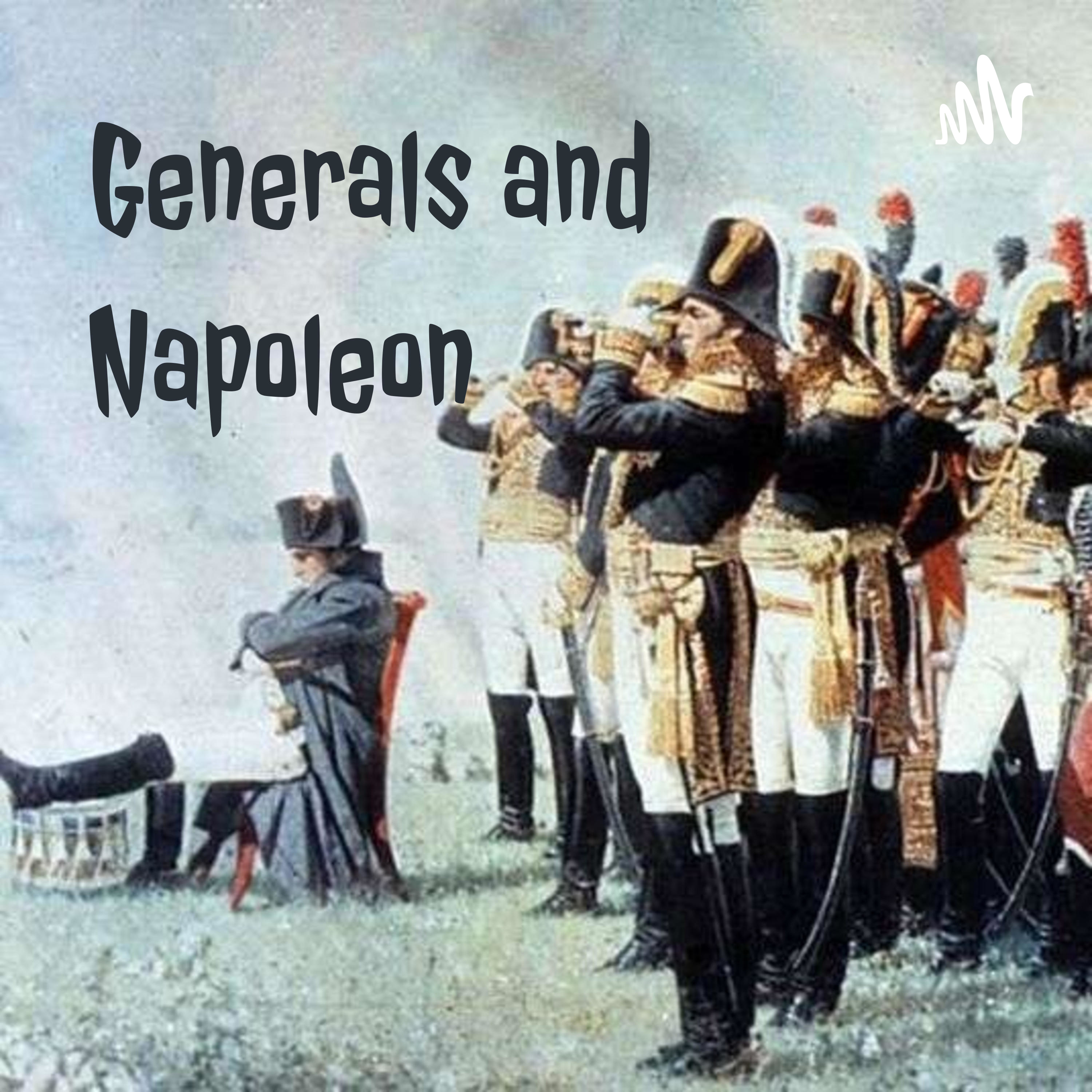
Generals and Napoleon
John W. Viscardo
Shipwrecks and Sea Dogs
Rich Napolitano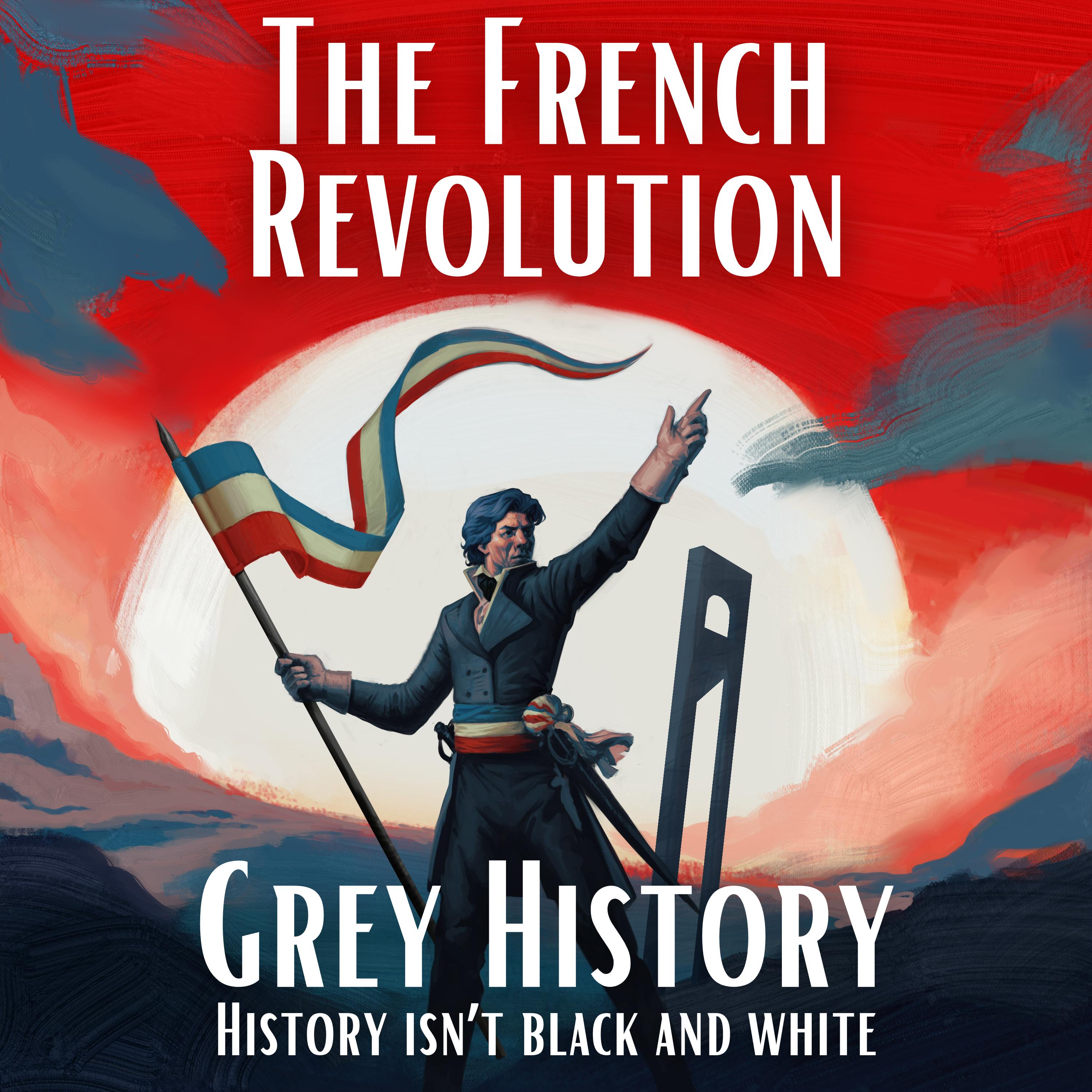
French Revolution & Napoleon (Grey History)
Grey History (William Clark)
The Life and Times of Frederick the Great
Alec Avdakov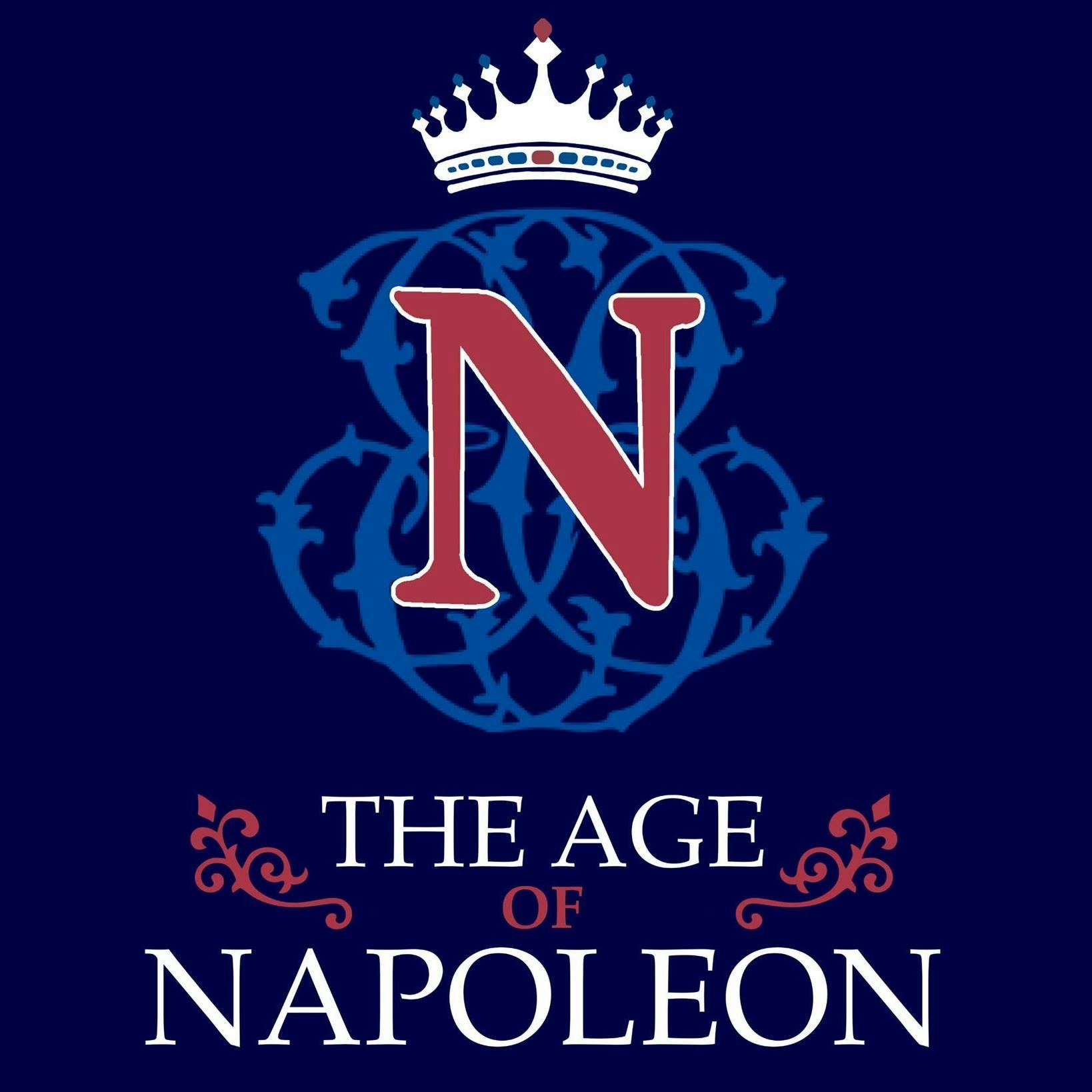
The Age of Napoleon Podcast
Everett Rummage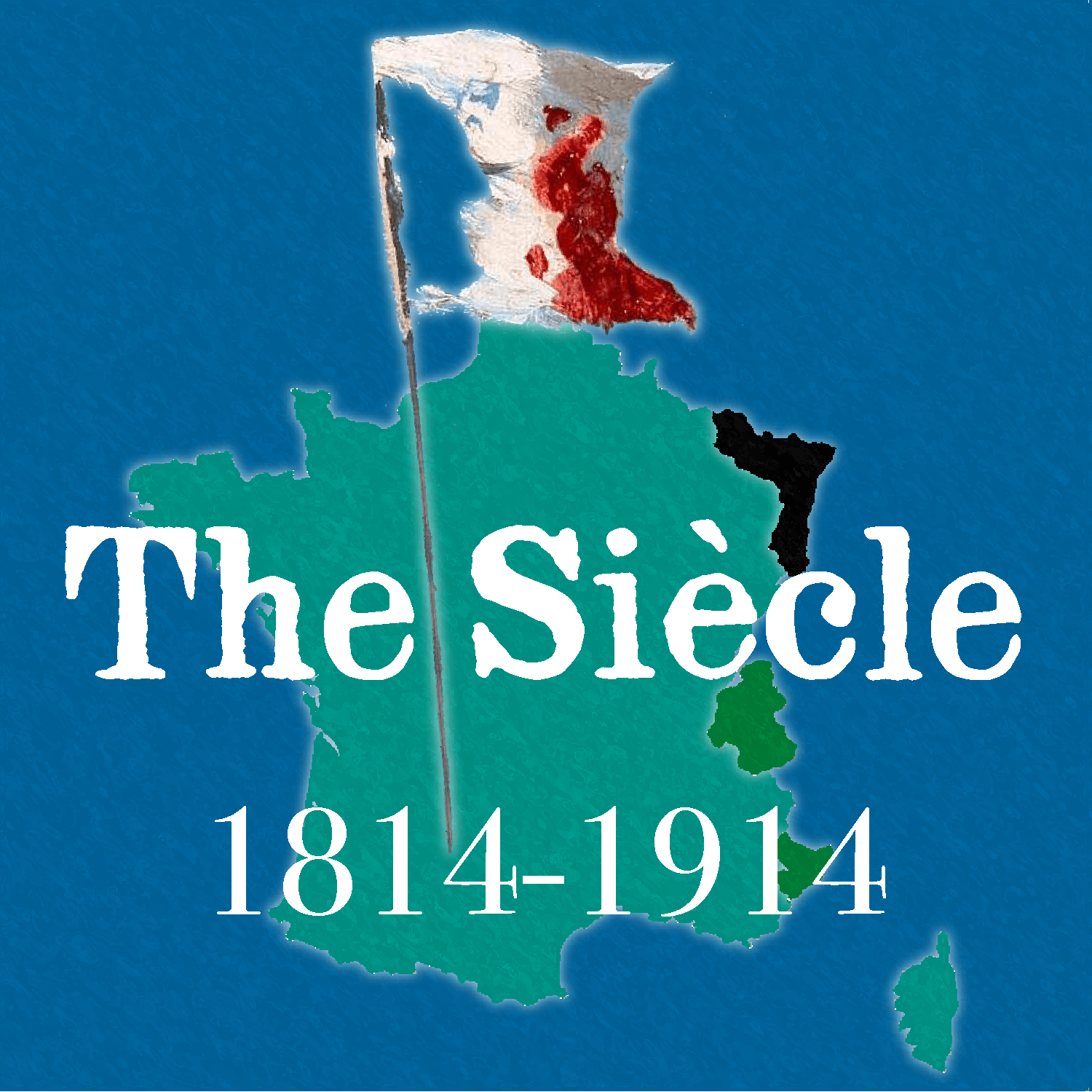
The Siècle History Podcast
Evergreen Podcasts
The Napoleonic Wars Podcast
Zack White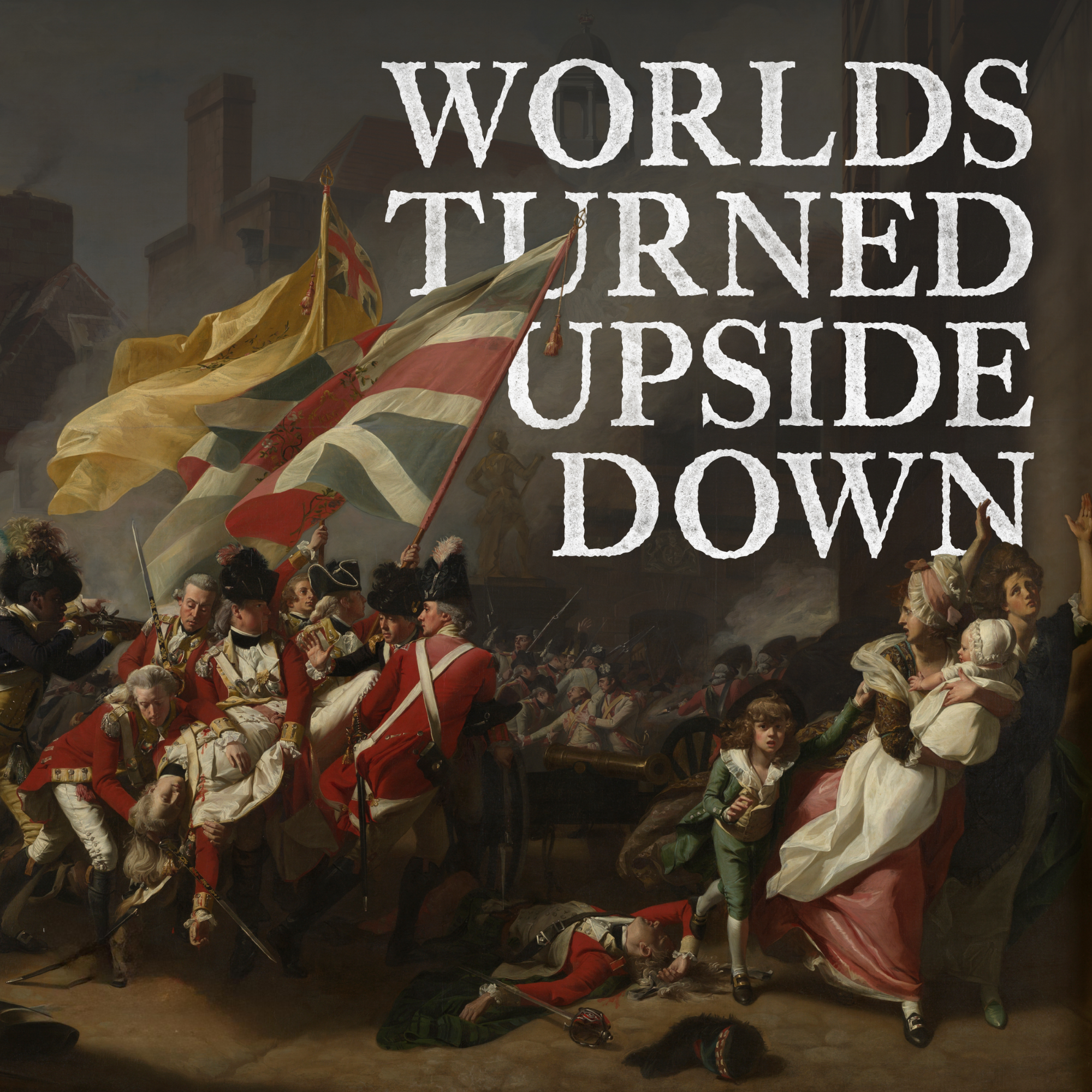
Worlds Turned Upside Down
Roy Rosenzweig Center for History and New Media
Empire-Builders
David Mainayar
Battles of the First World War Podcast
Mike Cunha
New York, Quebec, and The Water Route to the Center of the World
William Matthews
Deep into History
Deep into History
Battle Royale: French Monarchs
Ben Clarke and Eliza Sommers
A History of Japan
Justin Hebert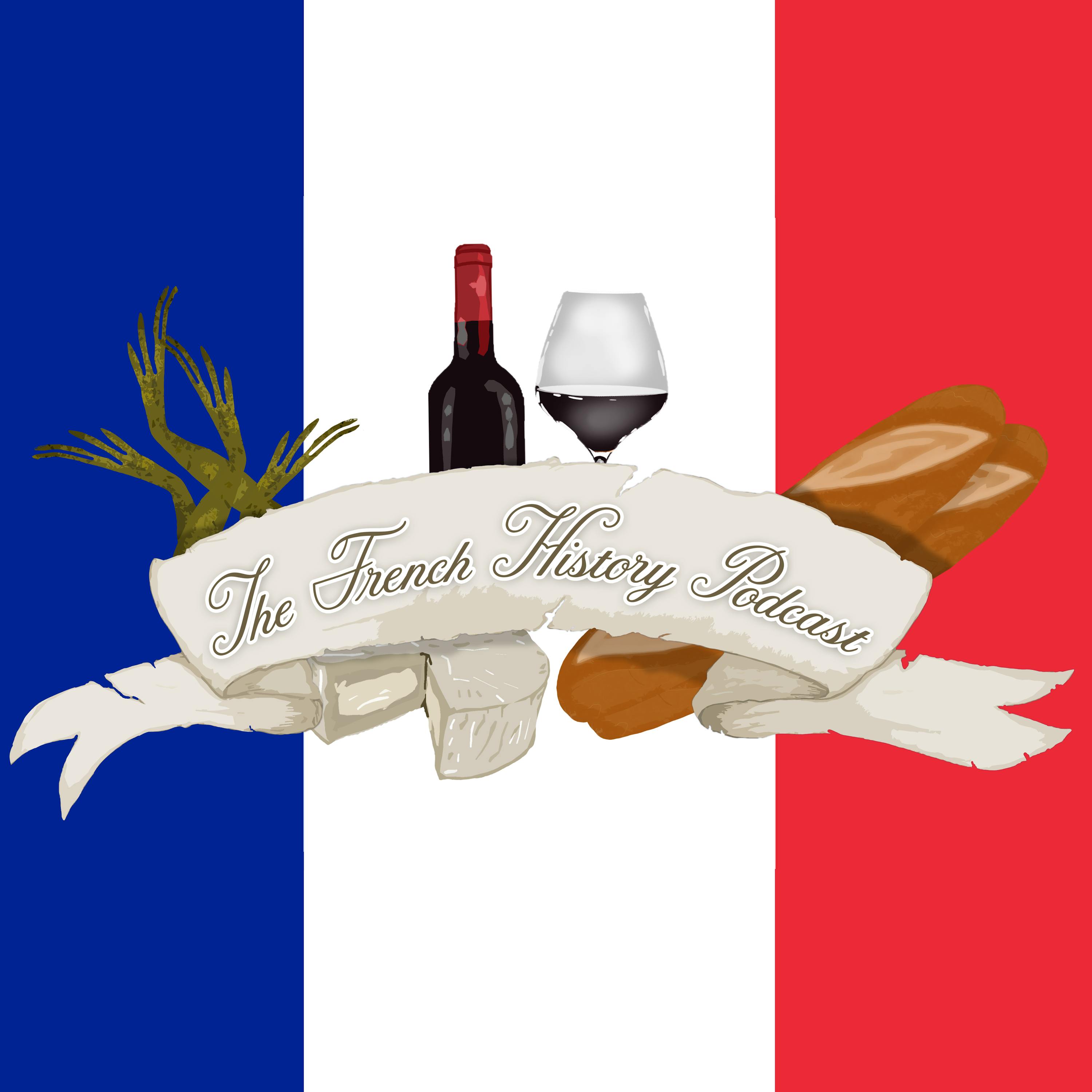
The French History Podcast
Evergreen Podcasts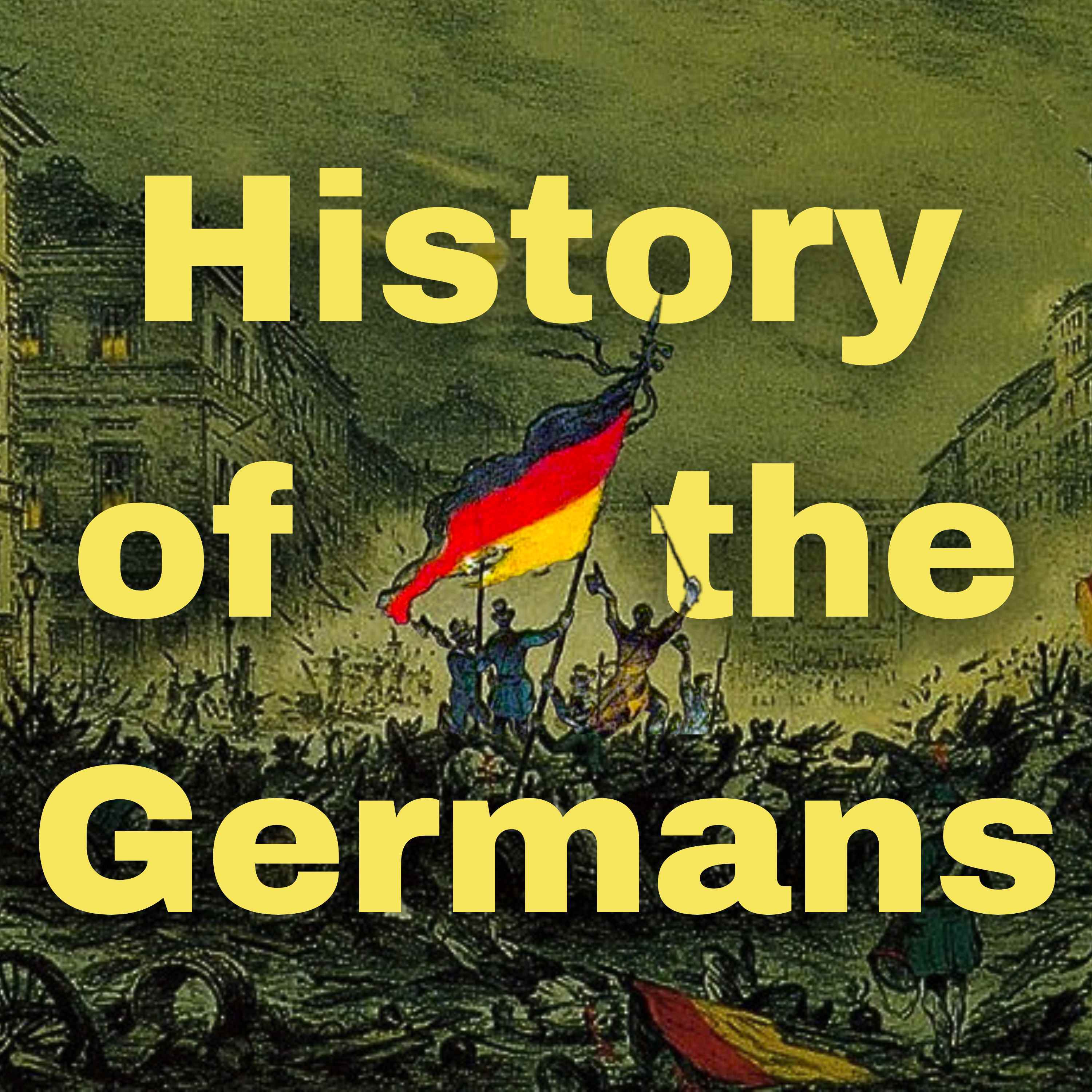
History of the Germans
Dirk Hoffmann-Becking
Half-Arsed History
Riley KnightFrench-Canadian Legacy Podcast
French-Canadian Legacy Podcast
The History of England
David Crowther
Canadian History Ehx
Craig Baird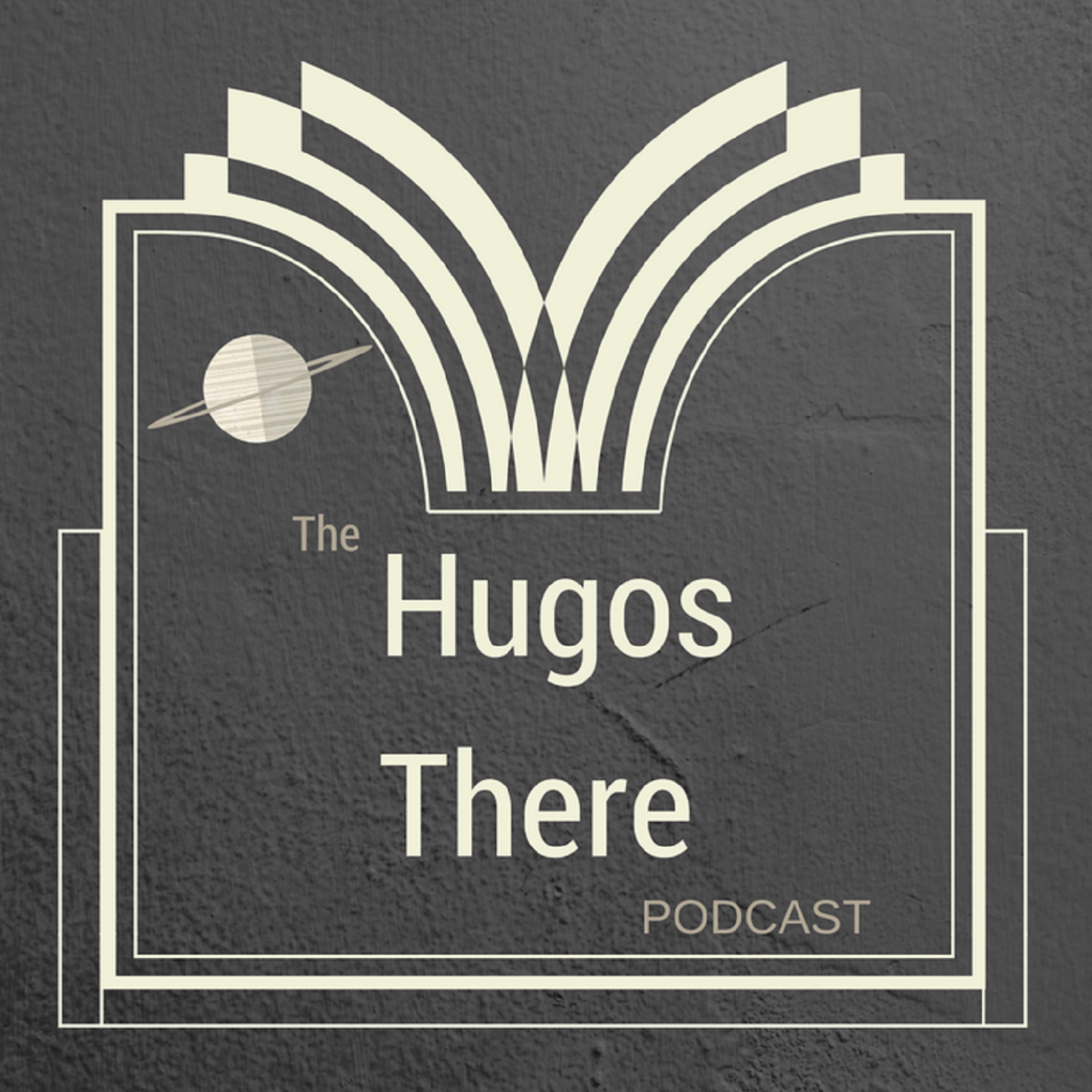
Hugos There Podcast
Hugos There Podcast
Hugo, Girl!
Hugo Girl

